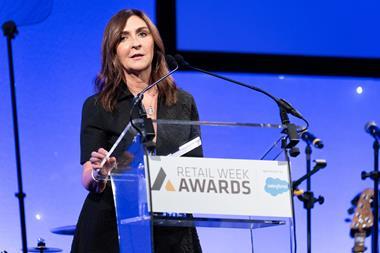Retailers need to understand how their people are really feeling to create happier and healthier workforces, says Retail Trust’s Chris Brook-Carter.
In the face of the cost-of-living crisis, the Retail Trust’s latest report into the wellbeing of the retail workforce has uncovered a troubling portrait of deteriorating wellbeing and financial stability.
More than half of the 1,500 retail workers we surveyed for our 2023 health of retail report say the cost-of-living crisis is damaging their mental health.
Nearly one in five say they are struggling to meet their monthly outgoings. And over a third think that financial stresses are further deteriorating their already compromised mental health, with 80% experiencing an overall decline in their mental wellbeing.
Rising challenges across the sector
We also discovered some distressing organisational challenges from the range of household-name retailers we interviewed for the report.
“Half of the people leaders we interviewed also reported a rise in staff absences in the last 12 months due to mental health issues”
One HR leader said there had been an increase in staff theft, while another revealed she had dealt with more suicidal employees in the last year than at any other point in her career – both alarming and shocking indicators of the desperation felt by many people.
Half of the people leaders we interviewed also reported a rise in staff absences in the last 12 months due to mental health issues.
Meanwhile, a third of retailers told us they have issued pay rises to match or exceed inflation and half have offered additional forms of financial assistance. But, despite their efforts, in an industry operating on already tight margins and at the rate at which inflation has been rising, many said they feel powerless to do enough.
The escalating wellbeing crisis
The retail industry is the UK’s largest employer outside the public sector and a large proportion of our people are on the lower end of the wage scale, making the impact of rising costs more acutely felt.
But the cost-of-living crisis isn’t the only factor contributing to the retail industry’s escalating wellbeing crisis.
We also know that our people are unfortunately becoming the targets of increased public abuse, with retailers reporting more instances of verbal, physical and sexual assault in the last year. This unacceptable behaviour has become another significant contributor to the deterioration in retail workers’ mental wellbeing.
It is clear we must work together to combat these worrying trends, with a focus on training more managers to support their teams’ wellbeing, raising awareness of where to get help and providing more people with the tools they need to support themselves.
And this all underlines the importance of listening to our people and being willing to ask the tough questions, understanding the real sentiments within our organisations and the steps we can take to create happier, healthier workforces.
Support for all
The Retail Trust is developing more support to help the retailers we work with, such as more training and staff resources, and new tools like our ‘better you’ happiness assessment. This gives employers much-needed data to understand and support their staff better while providing employees with personalised advice and programmes designed by clinical specialists.
Harnessing the power of this kind of data and personalised support will ensure that our wellbeing strategies align with the actual needs of our businesses.
With evidence-based, actionable insight, we can better support our people and empower our colleagues to take charge of their own health and wellbeing.
“More people than ever are now talking, reaching out for support and turning to their employers for help”
I firmly believe in our industry’s ongoing commitment to improving wellbeing and we are already seeing some signs of improvement since our last health of retail report in 2022, with this year’s findings showing a groundswell in mental health openness.
More people than ever are now talking, reaching out for support and turning to their employers for help, and this represents a huge achievement by the people leaders in retail to spearhead such a seismic shift.
It shows that we must all remain committed to improving the hope, health and happiness of the retail workforce.
Working together in this way for the future of the sector will provide the industry with the collective power it needs to make retail a better place to work.

Chris Brook-Carter is chief executive of the Retail Trust





























